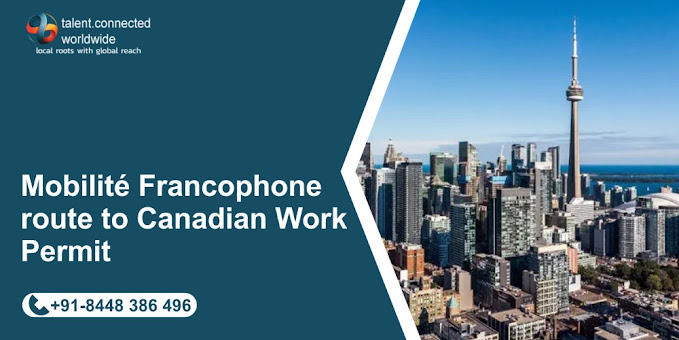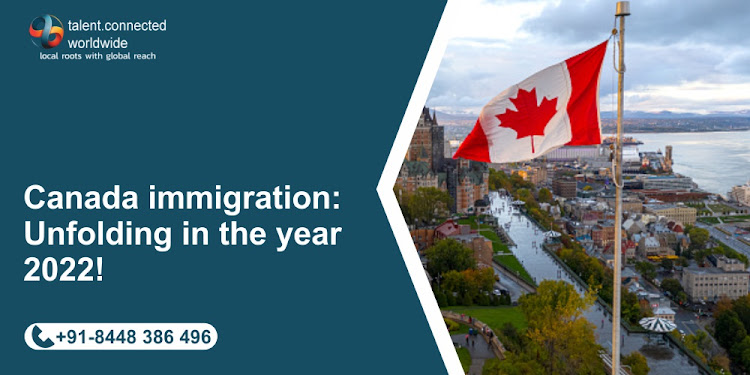Mobilité Francophone route to Canadian Work Permit
Is it simple to immigrate to Canada? Many people believe that immigration to Canada is simple for individuals who are highly qualified, skilled, and experienced. To immigrate to Canada, you don't have to be Superman or Superwoman. You just need to consult Canada immigration consultants in India.
Instead, you should concentrate on utilizing all available programs and streams in order to obtain a work permit or permanent residence in Canada. Once you have a job in Canada, the road to long-term residency becomes much smoother.The
Mobilité Francophone stream of the International Mobility Program is another
simple option to qualify for an LMIA-exempt work visa that most people
overlook.
Francophone immigration is
a big deal for Canadian immigration
Do you know
that outside of Quebec, Canada has a special goal for settling French-speaking
immigrants? In 2018, Canada declared that French-speaking immigrants settling
outside of Quebec would account for 4.4 percent of overall immigrant
admissions.
As of
2019, this group of immigrants accounted for 2.8 percent of all admissions,
implying that Canada will need a 50 percent increase in French-speaking
immigrants planning to reside outside of Quebec to fulfil its 2023 goal.
Mobilité francophone is a
stream of IMT
In
2016, Canada launched the Mobilité Francophone stream under the IMT to increase
Francophone immigration.
Employers
can hire foreign skilled employees without having to follow the onerous LMIA
standards because all IMT streams are LMIA-exempt programs. This eliminates
the requirement for:
a.
Obtaining LMIA approval
b.
For four to six weeks, the position will be
advertised throughout Canada.
c.
Paying the LMIA fee of $1000
d.
Meeting quota targets or developing
transition plans (high-wage LMIAs) (low-wage LMIAs)
e.
Following the LMIA rules' continuing
procedures and compliance requirements
Obviously,
a Canadian company would prefer to hire a foreign worker through the Mobilité
Francophone stream over the traditional LMIA-mandated Temporary Foreign Worker
Program.
How does a candidate
qualify for Mobilité Francophone?
You must intend to live and work in a
French-speaking community outside of Quebec to be eligible for the work permit.
Consult
Canada immigration consultants in Delhi
for more information.
You
must either speak French as a first language or as a second language on a daily
basis. The Immigration Officer will ultimately determine whether you meet this
condition or not. Another way to qualify is if your French language test result
is NCLC 7 or higher. The test results must be within two years of the
application's submission date.
You
must have a genuine job offer from an authorized Canadian employer, as with
other job permits. An offer for a NOC 0, A, or B occupation is required.
It is
not necessary for your employment to need knowledge of or use of French as part
of the job description. This means that even work that can be done by someone
who only speaks English can help you qualify if you can communicate in French.
How can Mobilité
francophone be life changing?
As you
can see, there are no unusual conditions to obtain this work permit. Any
skilled worker can apply as long as he or she is fluent in French and can use
it as a second language on a regular basis.
So, if
you're willing to put in the effort to learn French, you can skip to the front
of the line and receive a job and a work permit in Canada without delay.
You can
use your Canadian job experience to qualify for the Canadian Experience Class
program once you've arrived in Canada. Alternatively, the FSWP-Express
Entry-ITA path to permanent residency is always available.
You are
required to consult Canada immigration consultants in Delhi for detailed information.




Comments
Post a Comment